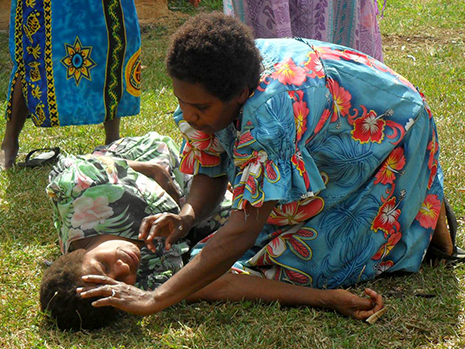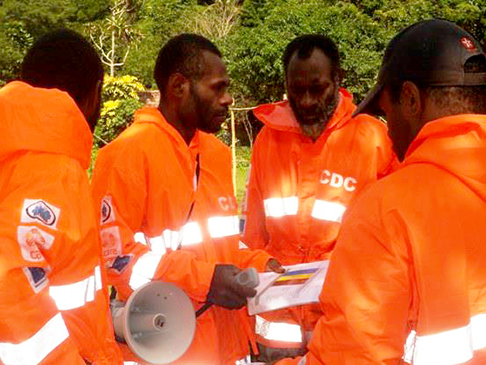From 8 to 10 January 2016, the 41,000 people of Tafea Province were placed on alert as Cyclone Ula made its approach toward the southern and eastern most islands of the province, Futuna and Aneityum. The cyclone was predicted to swing south, narrowly missing the islands, but not without bringing gale force winds, flooding and extremely rough seas.
Trained by CARE, the Emergency Operations Centre (EOC) operated by the Tafea Provincial Disaster Committee, were able to coordinate a strong response, sending teams to warn Tafea residents to tie down roofing, prepare food and water, and move to safe locations. Regular warnings and updates provided by Vanuatu Meteorological Services were relayed to Area Secretaries and Community Disaster Committees across Tafea, to ensure communities were kept informed of Cyclone Ula's development.
Cyclone Ula passed approximately 200 kilometres south of Aneityum Island. Residents of Futuna and Aneityum spent the night sheltering in safe houses, experiencing strong winds and rain through to the morning of 11 January. No loss of life, injuries or major damage was reported, with some damage sustained to food gardens, boats and flooding in some areas.
Tafea has been struck by Category Five Cyclone Pam in March 2015, which destroyed houses, food gardens and water supply systems, leaving Tafea one of the worst affected provinces. Another major cyclone would have placed even further strain on these already vulnerable communities.
CARE International in Vanuatu (CARE) has led disaster preparedness activities in the Tafea province of Vanuatu since 2008. Funding from Australian Aid (DFAT) through ANCP and the European Commission's Humanitarian Aid and Civil Protection department (ECHO) has supported CARE to work with the Provincial Disaster Committee (PDC), Community Disaster Committees (CDC) and the community on targeted preparedness activities. CARE's work aims to increase the representation of women in leadership roles, give greater voice and consideration to the needs of older people and those with disabilities, and promote activities that aid adaptation to climate change.
With the support of ANCP and other funding, CARE's work promoting preparedness activities in Tafea has saved lives, kept rates of injury and fatality low, safeguarded livelihoods, maintained food security, promoted female leadership and strengthened communities.
In 2014-15 through the ANCP, Australian aid supported 9 NGOs to deliver 28 Disaster Risk Reduction projects in 10 countries. Some 900,000 people benefited from this assistance.


